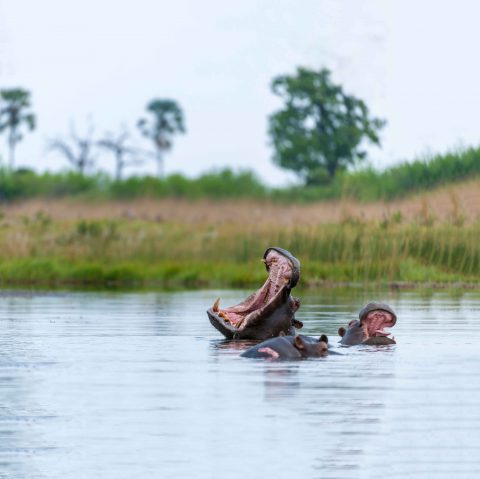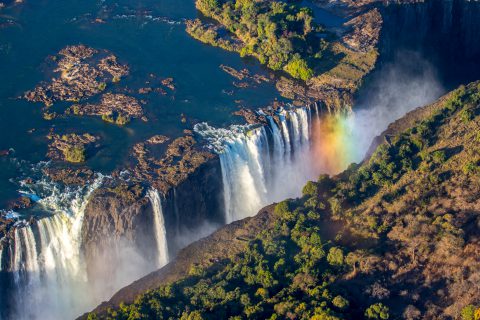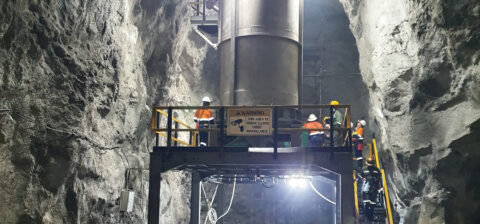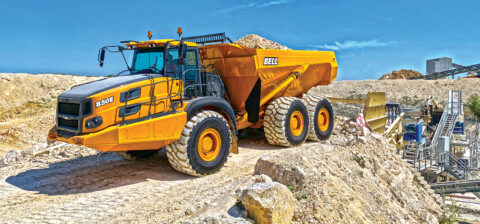Financial Mail Travel
Soul Balm
A mercurial water wonderland
Hiking to the South Pole, cruising Norway’s fjords, trekking across the Chilean Altiplano… All on countless bucket lists, for sure. There is nothing, though, that is quite like living on an island surrounded by the vast wildness of the Okavango Delta. It is a place so pure and primal that merely being there tunes your soul to an ancient rhythm.
It is a place where I breathe more deeply, where something inside feels at home. I know of no other sensation like it.
Place before time
The Delta is a world before time, a vast fan-shaped watery wilderness comprising labyrinthine channels and lagoons, grassy floodplains, palm-fringed islands, clear streams, permanent swamps and mopane forests. A sloshy primordial Eden that for aeons has served as a life-giving oasis. It feels so unspoiled and unsullied, as if immune to civilisation, permanently besieged by the kind of magical chaos only nature can create.
It is no one-dimensional paradise, however. For visitors, it is a confusing place, filled with novelty. It starts as you peer through the airplane window and observe the juxtaposition of dry desert with green, watery oasis, and continues as you land at Maun’s tiny airport, seemingly in the middle of nowhere, and then climb into an even smaller aircraft for a brief hop through the air that lasts just a bit longer than you taxied, before touchdown on a gravel strip that usually has to be buzzed to get the zebras and bewildered warthogs off the runway. And then you’re whisked to within a short drive of the water’s edge before being ferried across the waters in an aluminium boat.
Blood and DNA
It takes roughly 90 minutes – at high pace – to get from Moremi Game Reserve’s Xakanaxa boat station to Xobega Island Camp, where our tents are waiting. That’s an hour and a half of pure exhilaration, zipping through narrow channels, dodging pods of hippos, and pausing to listen to the cries of birds streaking across the sky. What you notice first is the ease with which your boatman navigates these unmarked waterways, a map burned into his memory from having been here since birth. You realise, suddenly, that this is not simply an exotic paradise which a privileged few get to visit. It is an ecosystem that has long sustained human life; a civilisation that figured out how to coexist with nature rather than disfigure it in an attempt to conquer it. Paul, our boatman-guide, is a wise soul with the Delta in his DNA, its water in his blood.
Turn off, tune in
Xobega is a tree-covered private island for people who come to Botswana not for needless fripperies but for an authentic immersion in the Delta. As Paul pulls up, we are greeted by waving, singing camp staff who take us under their wing and put us to bed in rustic, old-school Meru safari tents with comfy beds and solar-powered lights and simple open-air bathrooms at the back. They ply us with hot water for bucket showers and lay out filling meals after entertaining us around the camp fire. Dirt pathways through the trees link our tents and there are a couple of open-air tented lounges in which to chill out, but the unfettered simplicity of life on the island makes it an effortless task to switch off and tune into the wonder of the wild environment that surrounds us. Between countless birds in the tangle of the overhead canopy, troops of curious monkeys and a lone elephant named Santos who roams the island, there is more than enough entertainment.
Thrills and chills
And then, of course, there is the added thrill of hearing lions roaring all through the night, wild dogs wailing somewhere in the distance… And the feisty slap of ice-cold air that greets us as we set off by boat each morning.
The Delta shocks me with its pre-dawn cold, in fact. This is not the hot, baking Botswana I remember from previous trips when I’d arrived for a simmering summer.
As I sit at the front of the boat, numbed by the cold, though, my eyes are giddy with the thrill of being out on the water. The ochre light that slowly spreads across the sky like some precious liquid is painterly and miraculous, illuminating the kind of elemental scene – silhouetted ilala palm trees and soaring birds – that stains itself into memory.
Occasionally we stop for close-up sightings of leathery crocs lying silent and still in the long reed grass or to watch red lechwes cautiously drinking at the water’s edge. We stop to explore islands, sometimes looking for a rare Pel’s fishing owl known to nest in this or that tree. All the while, Paul points out idiosyncrasies and tiny minutiae – strange insects, weird lizards, saddle-billed storks and the familiar call of an African fish eagle.
Silent magic
Also miraculous is the quiet contemplation that happens when you’re drifting along the Delta’s narrower channels with an oarsman deftly poling you along in a mokoro dugout canoe, dwarfed by beds of tall reed grass. For a blissful hour or so, there is nothing else in the world aside from the gentle, hypnotic splish of the pole against the water’s mirrored surface.
Days end as they begin, on the water on that boat, with Paul’s experienced hand on the tiller as we find a more perfect spot to witness the sun slowly descend, casting a fiery, crimson glow across water that possesses some sort of potent magic. It’s a magic that restores your soul, makes you feel connected, more human.
Island daze near the mighty falls
The mighty Zambezi is among Africa’s most powerful and important rivers. It flows 2 574km from the highlands of northern Zambia to the Indian Ocean. Along the way, it not only feeds myriad ecosystems but also carves magnificent gorges and, at its most admired and photographed point, tumbles over a sheer cliff to create one of the world’s most incredible natural wonders, a frothing tumult of wet and spray that has enraptured travellers for almost two centuries.
But there is more to the Zambezi than Vic Falls. As it wends its way through vast stretches of wilderness, it is sprinkled with islands – among them, a 1.4km-long spindle-shaped beauty called Chundu.
One minute to paradise
A one-minute boat ride from the Zimbabwe mainland, with Zambia on the opposite side, the island is imbued with a fabulous eco-lodge sheltered by magnificent mahogany trees that filter the sharp African sun and dapple the island in puddles of shade. Serene vistas enfold you on all sides, whether you’re lazing at the pool, sinking island cocktails at the bar, or staring beyond your toes while lying in bed. There are just eight canvas-and-wood freestanding bungalows, each with a generously-sized deck overlooking the nearby waters of the Zambezi River and the national park on the opposite shore. Through the night, while tucked between soft linens, you’ll hear the bush come to life – honking hippos, grunting lions, and maniacal hyenas chortling in the distance. The effect is pure exhilaration.
Upstream Seychelles
Although a mere 21km upstream from Vic Falls village, Chundu feel as though it’s a million light-years from civilisation… In fact, as you stare across the sandy shores with the setting sun transforming the river’s surface into a pool of liquid gold, it’s plausible to imagine that you’ve landed on the white beaches of some Seychelles-like paradise rather than deep within a rugged African bushveld where crocodiles bask on the shore and elephants sometimes swim across the water. When you listen, though, and hear the cries of fish eagles, or find yourself serenaded by chorusing frogs or the rut-tut-tutting woodpeckers and whirring insects, the effect of being immersed in the wilderness is felt deep in your soul.
Balance

To counterbalance the lazy days, guests can set off on guided bush walks, jump in a 4X4 for a more traditional safari, or cast a line for fish. Plus, you can venture out in a two-person canoe for a gentle jaunt down the river. It’s a chance to feel like you’re putting in an effort whilst being afforded a different perspective on the surrounding scenery. It’s quite usual to spot hippos and crocs and elephants as you paddle and drift downstream. And then, as evening approaches, you can enjoy one of Chundu’s languid sunset cruises – the hardest work involves lifting drinks to your lips while watching the waters radiate golden-red hues as the sun dips on paradise.
Fantastically faraway from everywhere
In Namibia’s remote, sun-baked northwest, amidst arid gravel plains and some of the country’s highest mountain ranges, women of the nomadic Himba tribe harvest berries from rare knobwood trees. Grinding them with red ochre and butter fat, they smear the mixture on their skin as a natural cosmetic that keeps their skins young whilst imparting a wondrous fragrance and protecting them against the elements. And here – in the near-forgotten emptiness of the Skeleton Coast’s Kaokoland region – the elements are unimaginably fierce, brutal, and unforgiving.
Africa’s loneliest lodge
To reach this faraway place, “you fly across the vast emptiness of northwest Namibia where there is nothing,” says Conrad Brain, who is a bush pilot, wildlife vet and conservation manager for Wilderness Safaris which operates Serra Cafema, a lodge built on the banks of the Kunene River in the remote Hartmann’s Valley. “You see nothing made by humans – no towns, no roads. Just huge mountains interspersed with red sand dunes. Most people who come have done some research so they know more or less what to expect, but it still blows them away. Nothing can fully prepare you for the sheer loneliness of the place.”
And yet, tucked away here, someone saw fit to build a lodge which is, according to Brain, among the most remote camps in Africa. Named for the eponymous mountains just on the other side of the river – in Angola, where they rise to 2 590 metres – Serra Cafema reopened in September after an extensive facelift. “You land at the top of the valley where it’s rugged, rough desert terrain with massive sand dunes, and then descend dramatically to where the river flows through quite a narrow, steeply enclosed gorge,” says Brain.
Space
There’s a lot of peace and quiet and space to contemplate the loneliness and isolation, but while exploring the surrounding area, there are potential sightings of desert elephants and black rhino. Guests get to meet the hardy Himba people who exist with their cows and goats – Brain describes them as radical nomads. “When it’s time to move, there’s nothing to pack up, they just go. They have no problem walking 400km in a week. Barefoot.”
“Some guests take a day or so to get used to it,” says Brain, “but you start to appreciate the fact that there is really nothing else, that you can be in a place that is so remote. You can be taken into the dune belt where you stand on a rock outcrop and all around you there is absolutely nothing else – just you. No infrastructure or roads or cars or other camps. Just space. Imagine!”






 Sign-up and receive the Business Media MAGS newsletter OR SA Mining newsletter straight to your inbox.
Sign-up and receive the Business Media MAGS newsletter OR SA Mining newsletter straight to your inbox.